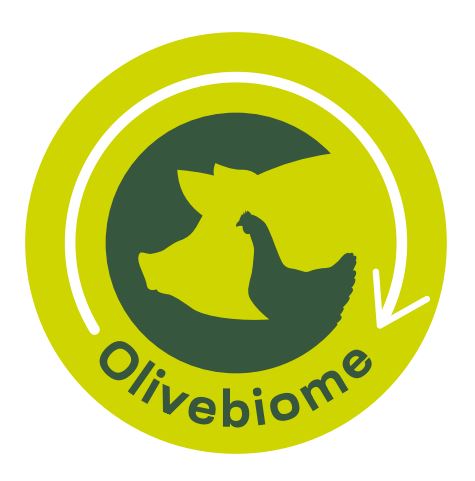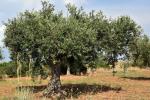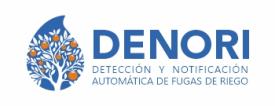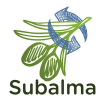
OLIVEBIOME Operational Group: Biotechnological development of pre- and probiotics for animal feed (poultry and swine) from alperujo fiber and other horticultural by-products
- Type Operational group
- Status In progress
- Execution 2024 -2027
- Assigned Budget 550.111,00 €
- Scope Supraautonómico
- Autonomous community Cantabria; Galicia; Madrid, Comunidad de
- Main source of financing CAP 2023-2027
- Project website GO OLIVEBIOME
The objective of OLIVEBIOME is to add value to olive pomace by obtaining a product intended for animal feed for monogastric animals, where through biotechnological processes they allow obtaining a product with potential effect as a prebiotic and/or probiotic, which will be evaluated in pigs (transition piglets) and in poultry (broiler chickens).
The project involves a series of innovative activities, starting with the study of the prebiotic capacity of olive fibre together with that of vegetables such as green asparagus and artichokes against microbial strains with proven bioactivity in animal intestinal microbiota, developing semi-industrial fermentation systems and evaluating their effective activity. The management of olive by-products requires the development of new processes in the olive pomace industry that allow for their sustainable treatment.
Finally, the use of raw materials with prebiotic activity that imply significant improvements in the quality and health of the production of proteins of animal origin, without resorting to the use of antibiotics or synthetic zootechnical additives, represents a great advance.
- Chemical typing of olive fiber.
- To understand the prebiotic and probiotic fermentation capacity of fiber extracted from alperujo and other domestic horticultural byproducts.
- To understand the nutritional capacity of fermented raw materials as a basis for developing a probiotic.
- Establish a fermentation model for raw materials with probiotic strains under laboratory conditions.
- Design and scaling of a bioreactor for the production of a probiotic from a selected prebiotic raw material and strain.
- To understand the impact of pre- and/or probiotics designed for experimental pig and poultry farm models.
- To understand the impact of pre- and/or probiotics designed for thermal challenge models in pig and poultry farms.
- To provide a sectoral report on the Spanish olive oil industry, reflecting the historical series of alperujo production by autonomous communities and provinces.
- Chemical characterization of fiber in raw materials from by-products of the pomace (aplerujo).
- Evaluation of the prebiotic activity of alperujo fiber and other by-products of vegetables produced nationally as a basis for the fermentation of a probiotic. Nutritional characterization and fibrosity of fermented raw materials used for the design of a probiotic.
- Modeling the growth of the best combination of raw materials and probiotic strains in the laboratory.
- Scaling up a probiotic production process from a microbial strain isolated from olives to the fermentation of an olive byproduct: raw material conditioning, fermentation, and stabilization of the prebiotic.
- Execution of proofs of concept with final products in pigs and poultry and collection of samples to evaluate changes in the microbiome.
- Evaluation of the final products (pre- and probiotics) in validation tests (larger number of animals and under conditions representative of commercial management) with a thermal challenge on pigs and poultry.
- Study of the productive potential of the Spanish olive oil industry's alperujo as a national macro strategy for obtaining fiber for animal production.
The objective of the OLIVEBIOME project is to find the use of olive pomace, but providing added value, so we will work on obtaining a product intended for animal feed for monogastrics where, through biotechnological processes, it will be possible to obtain a product with potential effects as a prebiotic and/or probiotic, which will be evaluated in pigs (in transition piglets) and in poultry (broiler chickens).
- Coordinator/entity name: Galician University Business Foundation (FEUGA)
- Postal address: R/Lope Gómez de Marzoa S/N - Campus Vida, Santiago de Compostela, A Coruña
- Coordinator/entity email: l.carbia@feuga.es
- Telephone: +34 981534180
- Fundación Empresa Universidad Gallega (FEUGA)
- Fundación Empresa Universidad Gallega (FEUGA)
- MASLINA INTERNATIONAL TRADE S.L.
- SAN MIGUEL ARCÁNGEL
- LUCTA







